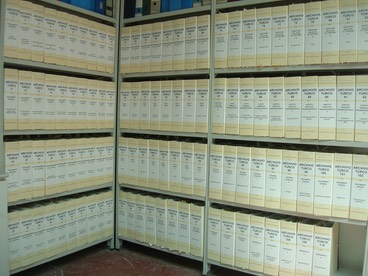UPDATE: Afghanistan Programme
1. Background: Afghanistan is one of the two largest producers of illicit opium in the world. During the years of foreign intervention and domestic conflict, Afghanistan experienced an increase in illicit and speculative opium poppy production. As a result of the devastation brought by the conflict upon the country's regulatory mechanisms, the years 1990-94 witnessed a relentless and unchecked annual increase in poppy cultivation. According to UNDCP's 1996 opium poppy survey, the area under opium poppy cultivation in Afghanistan ranged during the 1995/96 season between 55,000 and 58,000 hectares. The yield was between 2,200 and 2,300 metric tonnes of dry opium gum, which is estimated to be 40 per cent of the global illicit opium production. It is estimated that opium cultivation generates an annual income to approximately 200,000 farmers of over US$60 million.
2. Taliban's stated position on poppy: On 11 November 1996, the Taliban Ministry of Foreign Affairs issued a note declaring their opposition to the production, processing, trafficking and abuse of illicit drugs. Since that date, UNDCP has concluded the design of its programme for Afghanistan and has submitted the same to the Major Donors Meeting held in Vienna between 12-13 December 1997. In the UNDCP Update on Afghanistan dated 2 January 1997 (copies available upon request), a summary was provided of the elements which form part of the programme and of UNDCP's new approach to involve other agencies (including NGOs) in its drug control effort.
3. Ashgabad Conference: During the Ashgabad Conference held 24-26 January 1997, UNDCP informed participants of its programme of assistance to Afghanistan. The following remarks were included in the closing statement of Mr.Yasushi Akashi, UN Under-Secretary-General for Humanitarian Affairs: "Drug production, trafficking and abuse are a direct challenge to the achievement of sustainable peace; they undermine good governance; they distort local economies and can ruin the social fabric; and they increase human suffering - not just in Afghanistan, but worldwide."
4. UNDCP's "positive conditionality" approach: UNDCP has recently developed a "positive conditionality" approach which will attempt to provide feasible alternatives to farmers in return for the local administrations' agreeing to reduce poppy cultivation within a specified period of time. To this end, UNDCP is attempting to mobilize the resources available from other UN agencies, NGOs, bilateral donors and neighbouring countries.
5. Size of donor pledges to date: Out of the requested US$16.4 million over a 4 year period, to date UNDCP has received pledges worth about half of this amount from: the UK, Germany, the US, Italy, the Netherlands and Norway. The schedule for the release of these funds is under negotiation between each donor and UNDCP HQ. Nonetheless, based on the knowledge that funds will be received by UNDCP at a later stage, an initial allocation of US$1.5 million was issued by UNDCP HQ from general purpose funds to allow the commencement of the programme.
CURRENT STATUS OF IMPLEMENTATION
6. Participatory planning with communities and district / provincial authorities: The Taliban movement has indicated that it supports UNDCP's participatory planning approach. It has furthermore indicated a readiness to cooperate with UNDCP, providing agreements are reached at the village / district level with the intended beneficiaries.
7. The package of outputs to be provided by UNDCP will be conditional upon the signing of an agreement with the village and district shuras that they reduce poppy cultivation progressively with a specific schedule for total eradication of poppy in these areas. Poppy cultivation will have to be terminated in all project areas by the end of the 1999-2000 growing season, at the latest. Under this arrangement, Taliban representatives at the district and provincial level will ratify those agreements and impose the ban on poppy cultivation in the target areas.
8. International NGOs with experience in participatory planning, are under recruitment to carry out the work at village and district level under the supervision of ROSWA.
9. Minimizing the "balloon effect": One of the most important elements of the new UNDCP programme is the broad-based effort underway to minimize the so-called "balloon effect" -- whereby poppy cultivation simply moves from one area to another area in response to a ban in the former. UNDCP is currently negotiating with Taliban the promulgation of a complete ban on poppy cultivation in those parts of the country which are currently poppy-free. If successful, this approach will isolate the areas where poppy is grown for targeted conditional assistance interventions without the risk of poppy cultivation moving into other areas.
10. UNDCP presence in Afghanistan: As part of its programme, UNDCP will assist the "Department for the Struggle Against Narcotics" in Kabul which reports directly to the Head of Taliban Shura. UNDCP will soon also maintain a regular presence in the capital. UNDCP will also establish local offices in Kandahar and Nangarhar shortly and vacancy announcements for national staff have already been advertized in the press.
11. 1997 Opium Poppy Survey: The 1997 Opium Poppy Survey of Afghanistan has started and will conclude with the publication of the report in August 1997. Beside estimating the cultivation of poppy at the village level, this initiative will also collect basic socio-economic data needed for planning purposes. UNDCP has now completed three full poppy surveys over the past three seasons in Afghanistan.


